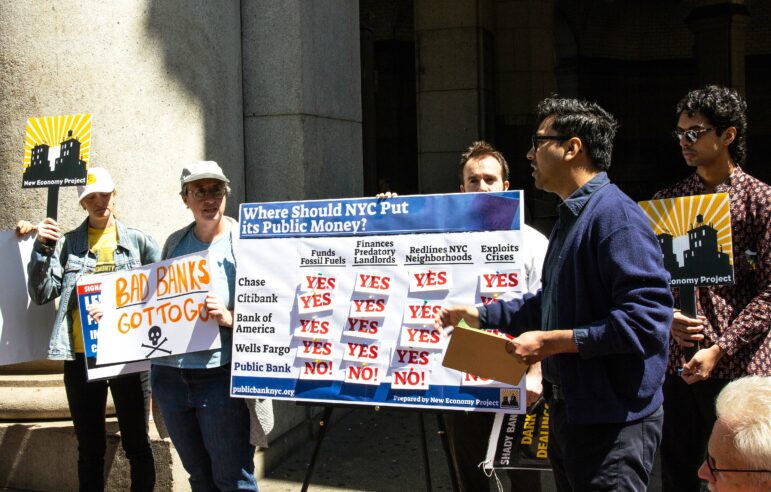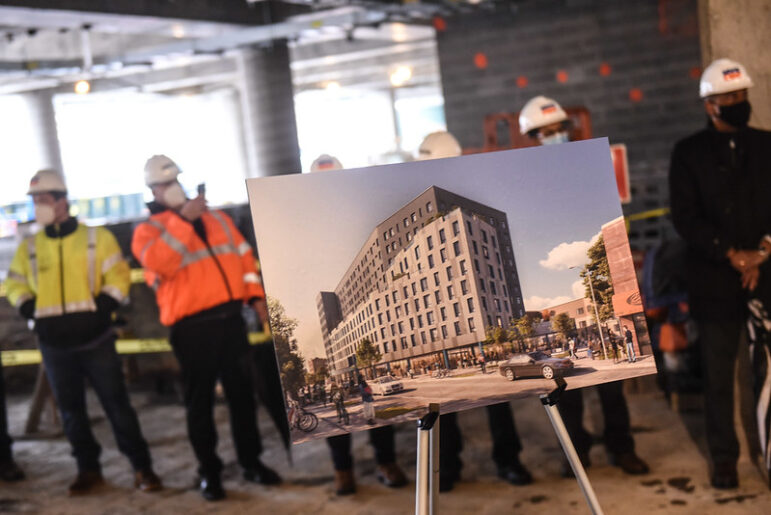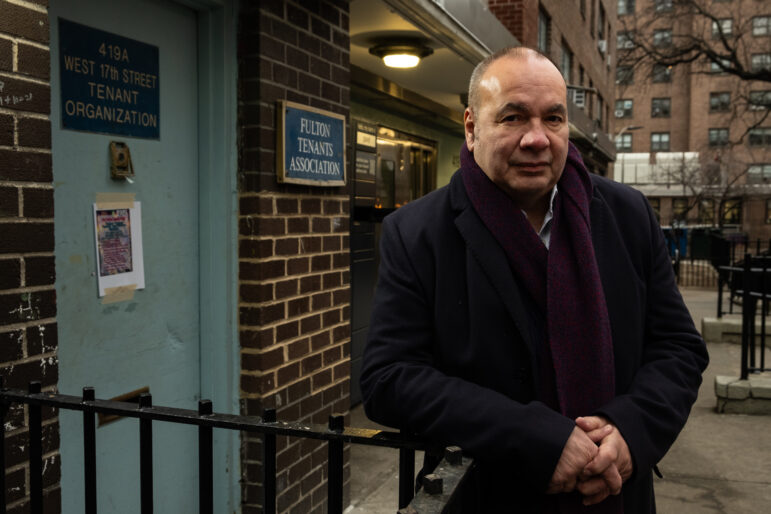Asociación Tepeyac, a nonprofit organization that serves New York’s Mexican immigrants, is often the lone ally of low-income workers. It’s helped laundry and restaurant workers throughout the city push for better working conditions. But Tepeyac’s own employees, now trying to unionize, say they have been blocked from securing those rights for themselves.
“We feel as a group we would have more of a voice in decisions,” said Education Rights Coordinator Daniel Chavéz. “The union can serve as a complementary group to management.”
Tepeyac employees introduced the idea of a union, Tepeyac Unido, in a May 19 meeting with a supervisor at the group’s East Harlem office. On May 23, several employees discussed their intentions with Tepeyac’s executive director, Jesuit Brother Joel Magallán.
Three hours later, Elizabeth Capone-Newton, the organization’s after-school program coordinator and a union supporter, was fired. “I was not given any reason in writing as to why I was fired,” she said. “I was not given any evaluation in writing.”
Angry at her dismissal, a group of a dozen parents there to pick up their children from the program, confronted a supervisor and demanded her reinstatement. That’s when things got hairy. “They [management] called the police and the children started to cry,” said parent Manuela Torres in Spanish.
To calm down the crowd, Torres and other parents met with Brother Magallán that night and Capone-Newton was immediately reinstated.
Andrés Mares Muro wasn’t so lucky. The group’s former coordinator of human rights programs, he had been a Tepeyac volunteer since 1998 and staff member since 2003. According to Mares Muro, he was demoted from his position in April because “things weren’t working out” and began serving as the coordinator of urgent services instead. On May 23, the same day as the meeting about the union, he was fired.
Brother Magallán maintains that it was for poor performance, but Mares Muro isn’t so sure. “I supported the union from the very beginning,” he said.
Much of the conflict revolves around issues of job security. “We work on one-year contracts,” said Brother Magallán. “Nobody is permanent.” But, he adds, a union isn’t out of the question. “We are ready to start a dialogue,” he said. “The board of directors agrees to begin the dialogue with those who want to unionize.”
Yet staff members are skeptical. “We haven’t met directly with them, nothing has been signed,” said Melissa Cantiello, English program coordinator.
Meanwhile, Tepeyac’s financial supporters are starting to take notice of the group’s labor problems. “Any ongoing legal considerations, among many other factors, we would consider in their request for a new grant,” said Jeffrey Hon, communications director of the September 11 Recovery Program. The recovery program is part of the American Red Cross, and Tepeyac received $209,000 to administer relief to immigrants affected by the attacks on the World Trade Center.
The staffers and parents say they don’t intend to put that funding in jeopardy. “We want Tepeyac to continue—and become better,” said Torres. “I am for [the union] because of what happened to Elizabeth—and so that the staff members are protected.”








